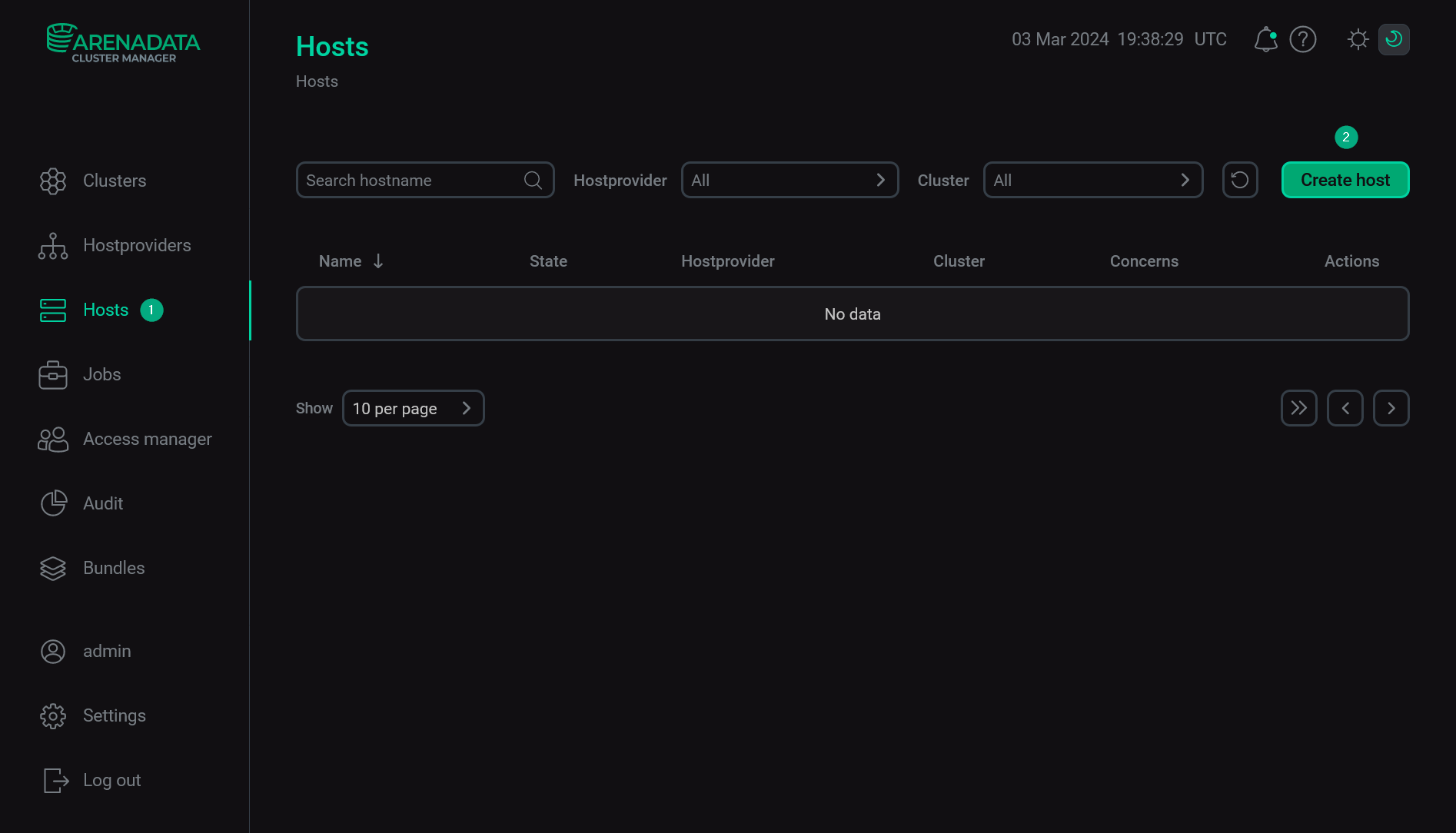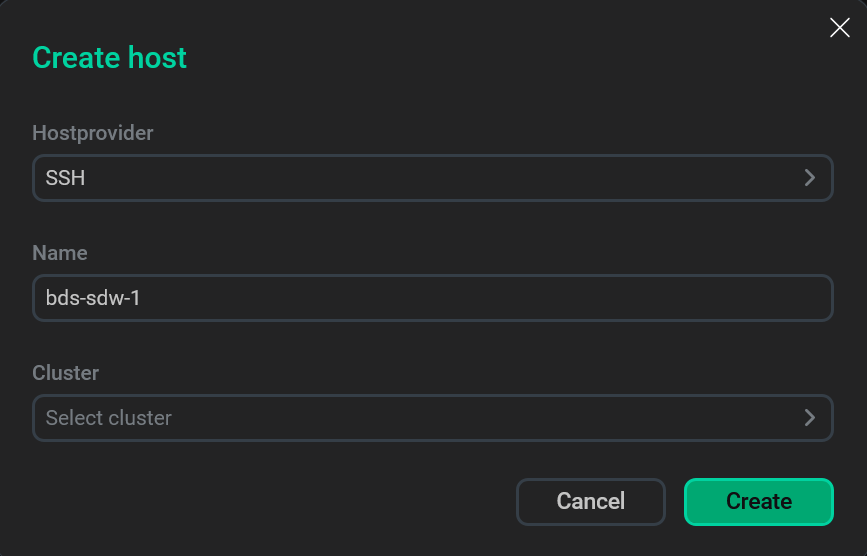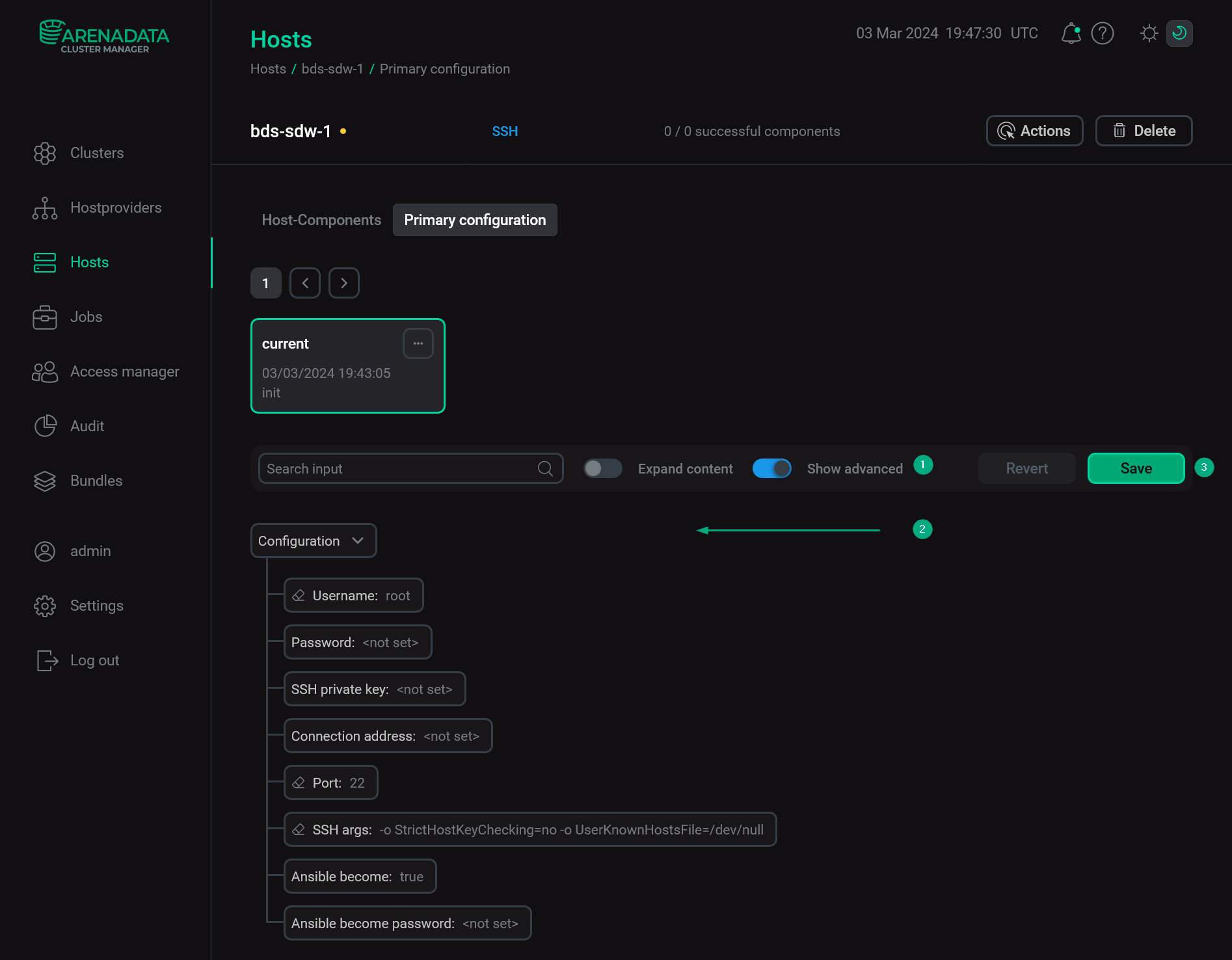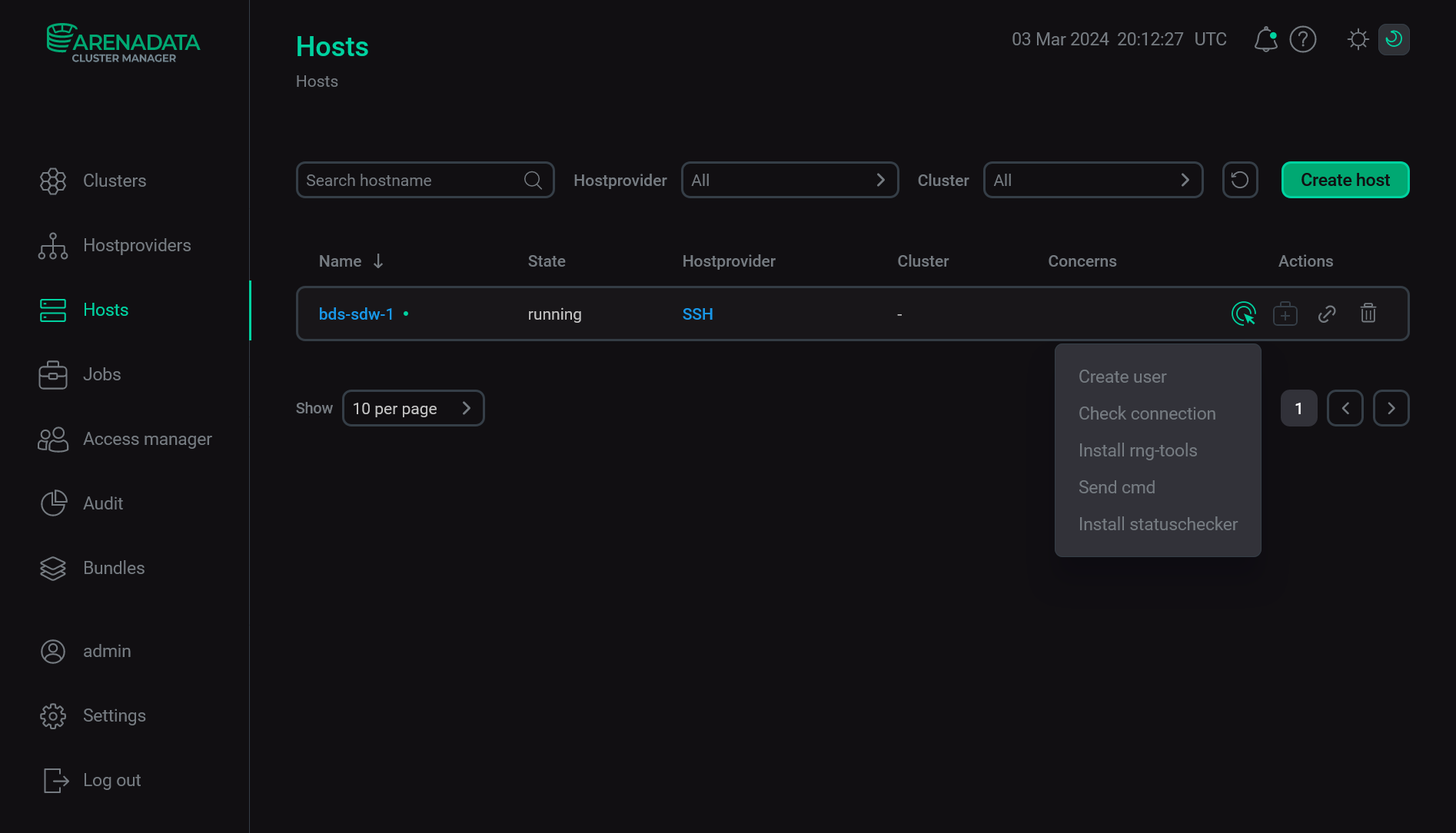

Create hosts with SSH hostprovider
|
IMPORTANT
|
The steps for adding a single host are listed below:
-
Select the Hosts item in the left navigation menu and click Create host.
 Add a host via ADCM
Add a host via ADCM -
In the opened dialog:
-
Select a hostprovider in the Hostprovider field. Notice that hostproviders are displayed with the names that you have assigned to them.
-
Enter a host name in the Name field. Some products (see below) require a fully qualified domain name (FQDN).
-
Click Create.
 Describe a new hostCAUTION
Describe a new hostCAUTION-
When creating hosts for the ADH and ADPS products, you should define an FQDN in the Name field (e.g.
test.ru-central1.internal). The maximum FQDN length is 38 symbols for ADH and 49 symbols for ADPS. -
For the ADS and ADS Control products, FQDNs are required if the ADPS product is used. The maximum FQDN length for ADS hosts is 48 symbols.
-
For the ADQM product, FQDNs are required if Kerberos authentication is used.
-
ADB starting with the 6.23.3.44 version supports both FQDN and short host names. For the previous ADB versions, it is not recommended to use FQDNs (as FQDNs cause errors during the Expand action and a workaround is needed).
-
In other cases, both short host names and FQDNs are allowed in the Name field.
-
-
Return to the Hosts page and switch to configuring the added host. To do this, click the host name in the Name column.
 Go to configuring a host
Go to configuring a host -
In the opened window, select the Primary Configuration tab, switch on the Show advanced toggle, fill in parameters, and click Save.
 Configure a host
Configure a hostThe assignment of parameters is listed in the table below.
Host configuration parameters Parameter Description Username
A user name that is used for connecting to a host via SSH. The specified user should exist on the host
Password
A user password that is used for connecting to a host via SSH. If you do not use a password, leave this field blank
SSH private key
A private SSH key that is used for connecting to a host via SSH. If you do not use SSH keys, leave this field blank
Connection address (Hostname in previous hostprovider versions)
An IP address of the host
Port
A port number that is used for connecting to a host via SSH (by default,
22)SSH args
SSH arguments for Ansible. Each parameter requires the following format:
-o <name>=<value>. Several parameters are separated by space:-o StrictHostKeyChecking=no -o UserKnownHostsFile=/dev/null.Thus,
StrictHostKeyChecking=noandUserKnownHostsFile=/dev/nullparameters disable strict host key checking for SSH. Otherwise, when this checking is enabled, the SSH client connects only to the known hosts that are stored in the known hosts list.Can be left at the default value
Ansible become
A flag that grants the superuser privileges to the user specified in the Username field. The default value should be used (flag is set)
Ansible become password
A password that is used during granting of the superuser privileges to the user specified in the Username field. Can be left at the default value
As a result of the performed actions, the new host and its actions become available on the Hosts page. To finish the configuration process, run the Check connection and Install statuschecker actions sequentially.
